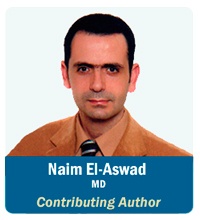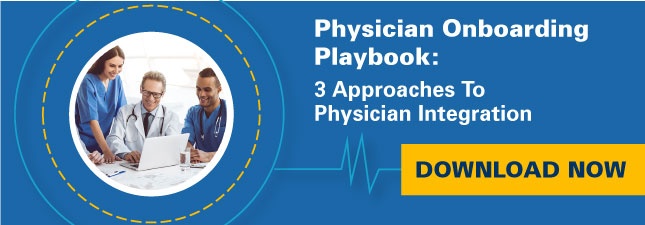 [4 MIN READ]
[4 MIN READ]
Behavioral neuroscientists talk about the moment, the exact second we make a decision and act upon it. They describe in almost obsessive detail all the neuronal pathways and neuronal firings that occur in our brain. They talk about influences of past and present, knowledge acquired and remembered, skills honed and sculpted, abilities, beliefs, social backgrounds, immediate stressors, mood, medications, current/immediate/past circumstances, possible future implications, and so much more. If you stop to think about it, what goes into that second of acting upon a decision, whether by words or actions, is really a reflection of present, past and future in all of us. Such a truly amazing phenomenon.
Now, take a minute to ask the patient if he or she cares about it?
“No one cares how much you know until they know how much you care.” -Theodore Roosevelt
“Mastering the moment” refers to a phrase that many life, executive, leadership and wellness coaches talk about. They discuss the impact of the moment of contact with another human being. Whether it is your patient, a co-worker, a staff member, your family members, or a total stranger – they talk about the repercussions of that moment and how it defines what you and the patient might feel and think or experience. It is the moment that is highlighted when it is a decision you make (diagnosis, data analysis, ordering a medication or a test), an action you take (during surgery, a skilled procedure, or an emergent intervention), or an awareness of what is going on around you (listening to the patient or the person in front of you, truly understanding what they are saying or expressing). This moment is the ultimate translation/expression at that particular time of who we are emotionally (angry, happy, burned out, etc.), physically (rejuvenated, exhausted), and cognitively (in complete control of our mind, able to think “straight,” mentally fatigued).
How are healthcare organizations incorporating communication strategies into onboarding? This playbook outlines 3 approaches to Physician Integration.
There are two questions to be asked here:
- At any one time, how aware are you of that moment?
- Perhaps even more importantly, what does it take to be aware of that moment?
Personally, I don’t know the answer to the first question when it comes to you. I will submit to you that many physicians also do not know the answer. Why? Because many physicians have been shown to score very low on the skills needed to answer that question. These are the very skills that are the answer to the second question. These skills are collectively known as your Emotional Intelligence.
 Naturally, we need to know what Emotional Intelligence or Emotional Quotient (EQ) is. Briefly stated, intelligence is the ability to acquire and apply knowledge and skills. EQ is the ability to acquire and apply the emotional knowledge and skills of self and others; it is the ability to understand ourselves, manage ourselves, understand others and manage others. EQ refers to our abilities to “master the moment.” There exist numerous ways for us to assess and measure our EQ; much like IQ, one can take tests to discover one’s inner strengths and weaknesses. Those strengths and weaknesses all play a part in the ability to master the moment.
Naturally, we need to know what Emotional Intelligence or Emotional Quotient (EQ) is. Briefly stated, intelligence is the ability to acquire and apply knowledge and skills. EQ is the ability to acquire and apply the emotional knowledge and skills of self and others; it is the ability to understand ourselves, manage ourselves, understand others and manage others. EQ refers to our abilities to “master the moment.” There exist numerous ways for us to assess and measure our EQ; much like IQ, one can take tests to discover one’s inner strengths and weaknesses. Those strengths and weaknesses all play a part in the ability to master the moment.
EQ is divided into 5 realms. Each realm is further divided into 3 sub-realms. It is beyond the scope of this blog to discuss them in detail. They are:
- Self-perception: self-regard, self-actualization, emotional self-awareness
- Self-expression: emotional expression, independence, assertiveness
- Interpersonal: social responsibility, empathy, interpersonal relationships
- Decision-making: reality testing, problem solving, impulse control
- Stress management: flexibility, stress tolerance, optimism
Take a look at each ability. Can you think of the ways each one is used in “mastering the moment”; e.g., impulse control, optimism, emotional self-awareness…?
Over 90,000 research papers, books, and dissertations later, here is what we know our EQ is responsible for:
- Anger management
- Stress tolerance
- Empathy
- Change tolerance
- Decision-making
- Accountability
- Trust building
- Flexibility
- Customer service
- Team work
- Social skills
- Communication
- Presentation skills
- Others
Again, take a moment and decide which one of those abilities is needed when you interact with another human being.
Literature has shown physicians to have the lowest EQ among all professions. This occurs not by chance, but by design. Prior to entering medical school, we are some of the most empathetic people on the planet. The essence of medicine is why we chose to go to medical school – helping and connecting with others. By the time we start practicing, we have the least amount of EQ skills to do so.
Over the next few blogs, I will be talking more about the importance of EQ, our training, and the essence of our profession. The focus will be on making us better physicians as measured not by external metrics, but by our own internal standards. It is those standards that pushed us to be physicians. It is those very standards that fueled our commitment to the grueling and challenging path of becoming physicians. And it is those standards and our own emotional intelligence that allow us to master the moment of impact to help the patients the most, minimize errors and mistakes, and become the best human beings and physicians possible for our own well-being as well as for that of our patients.



